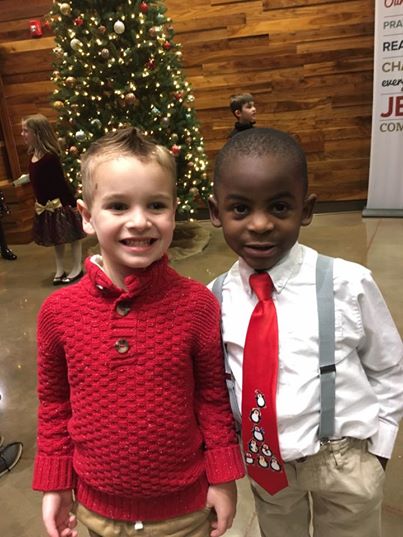Educating children in equality is a matter of utmost importance for their emotional development and for the benefit of society itself. And it is not impossible, since there are exceptional cases of empathy and emotional intelligence at an early age, as in the case of the child from the United States who one day decided to surprise his teacher by playing a tender and innocent joke. One day like any other his mother took him to get a haircut, and he decided to ask if he could shave his hair like one of his best friends. Seeing that his mother accepted and looked the same as his friend (of another race) when leaving the hairdresser, he could not wait to get to school to play the joke of impersonating him and trying to confuse her.
This case shows that, depending on the education received from a very young age, children grow up or not seeing differences with respect to other people or developing prejudices . This wonderful anecdote moved that mother, who did not take a minute to spread the news on social networks, sharing it with millions and millions of people and sharing an important message with the world: that young children are born with a clean and free mind. , and it is up to the adults to keep it that way.
When we are children we all feel equal, and it is as we grow up when certain differences are observed or prejudices are inserted in the mind motivated by inappropriate or discriminatory education. That is why the right to equality and non-discrimination is a fundamental issue that we must instill in the smallest, without distinction of race, sex, nationality or religion. We must explain to our children that differences enrich us, that they do not separate us, and that in no case do they make us superior or inferior to the rest. For example, we can explain that just as many birds have different colors in their plumage, many people have different skin color or stature, which actually makes them unique and special.

This in many occasions is not an easy task, since children can be surrounded by people with prejudices and without the minimum tolerance towards others. If children see racist reactions in their environment from their parents, family or friends, this can undoubtedly negatively influence their social development and how they treat others.
Empathy is the foundation of emotional intelligence
Empathy is often defined as the way things look from the other person’s point of view. But empathy is actually a physical event, controlled by the right hemisphere of our brain. The structure of the so-called right brain is formed during the first two years of life, even before the baby acquires the ability to speak. That right hemisphere connects with the heart, with the digestive organs, with the skin… and consequently, when our heart jumps, or our stomach turns, or our skin becomes irritated…, it sends us a message. In the same way, when we feel a deep empathy, we also feel it directly in our own body, and that means that empathy is also the ability to “feel” or put ourselves in the shoes of others .
When children are about 6 months old they can recognize certain types of racial differences between people; With only 2 years they can acquire habits and prejudices that they see in their environment; with about 12 they can fully develop their personality and beliefs, most likely related to everything they have seen and learned until then … And this gives a period of no more and no less than 10 years, enough time for adults ( and fundamentally fathers and mothers) avoid moral and cultural prejudices. Plenty of time to learn to live in harmony, to respect, to understand … and to adapt to a rich and intercultural society in which education is everyone’s responsibility.
Empathy, therefore, strengthens the bond of relationships and helps children feel understood, less alone with their possible sufferings, desires and longings. Empathy heals, and the experience of empathy teaches little ones about the deepest ways in which humans can connect, providing them with a solid foundation for their social relationships and development in the world.











































































































